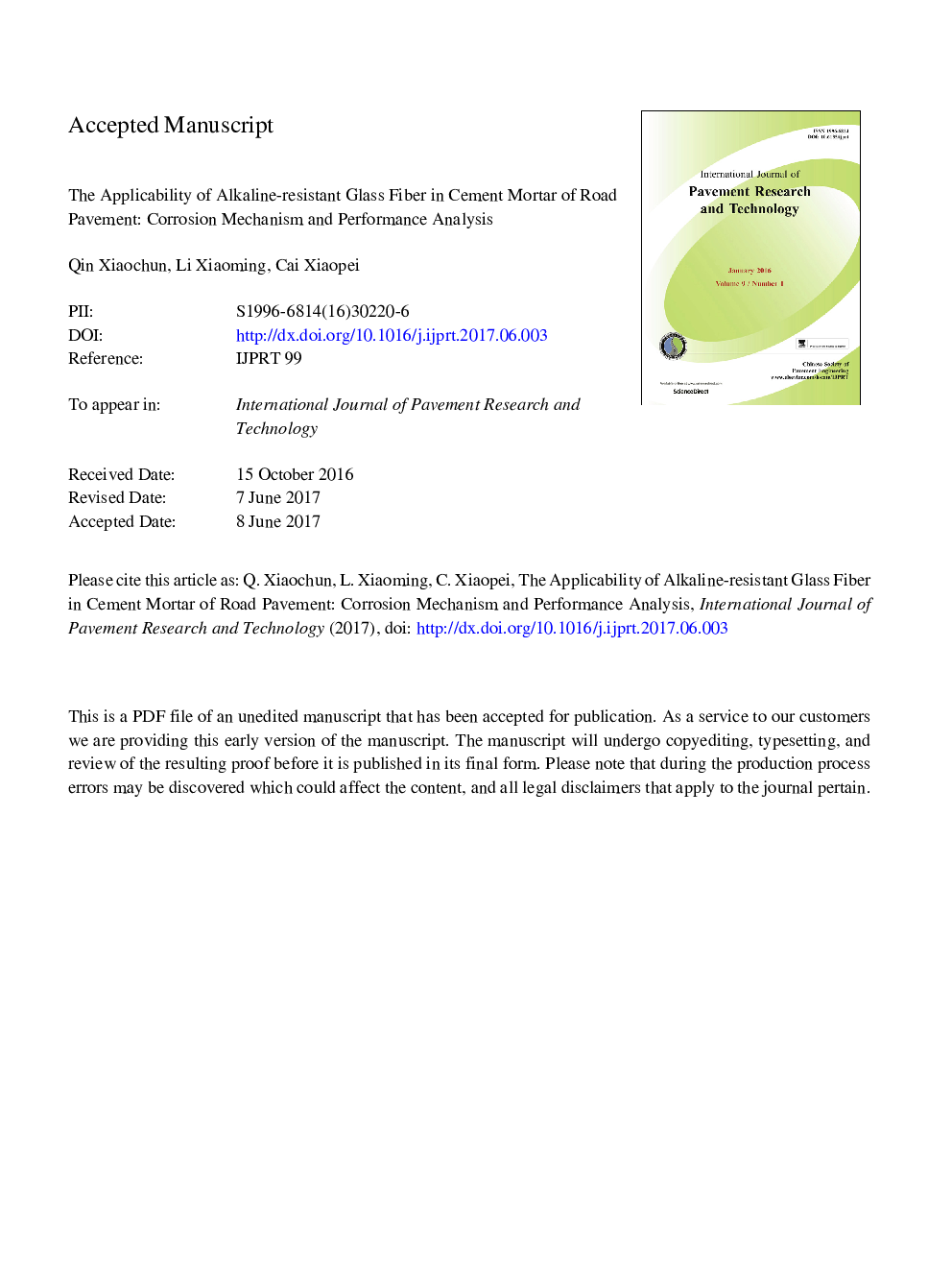| Article ID | Journal | Published Year | Pages | File Type |
|---|---|---|---|---|
| 6747982 | International Journal of Pavement Research and Technology | 2017 | 18 Pages |
Abstract
The main technical requirements of road pavement concrete are high flexural strength and fatigue durability. Adding glass fiber into concrete could greatly increase flexural strength and wearing resistance of concrete. However, glass fiber has the great potential of corrosion during the cement hydration, which will directly affect the long-term performance and strength stability. In this paper, accelerated corrosion experiments have been done to find out the corrosion mechanism and property of alkali-resistant glass fiber in cement mortar. The applicability and practicability of alkaline-resistant glass fiber in road concrete have been illustrated in the analysis of flexural strength changing trend of cement mortar mixed with different proportions of activated additives to protect the corrosion of glass fiber by cement mortar. The results have shown that a 30% addition of fly ash or 10% addition of silica fume to cement matrix could effectively improve the corrosion resistance of alkali-resistant glass fiber. The optimal mixing amount of alkali-resistant glass fiber should be about 1.0Â kg/m3 in consideration of ensuring the compressive strength of reinforced concrete in road pavement. The closest-packing method has been adopted in the mixture ratio design of alkali-resistant glass fiber reinforced concrete, not only to reduce the alkalinity of the cement matrix through large amount addition of activated additives but also to greatly enhance the flexural performance of concrete with the split pressure ratio improvement of 12.5-16.7%. The results suggested a prosperous application prospect for alkaline-resistant glass fiber reinforced concrete in road pavement.
Related Topics
Physical Sciences and Engineering
Engineering
Civil and Structural Engineering
Authors
Qin Xiaochun, Li Xiaoming, Cai Xiaopei,
